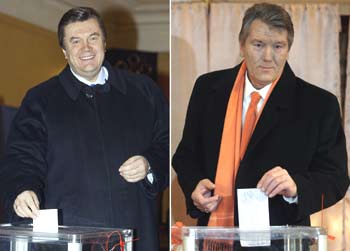 While those who detest the loss of national power to international bodies usually blame the UN, it is a World Trade Organisation decision this week that is posing the most serious threat yet to Australian government policy. The high-stakes decision is about cigarettes smoking, a global pandemic that kills six million people a year. Accounting for one in every 10 adult deaths, smoking is the most widespread public health threat in the world and the single biggest preventable cause of cancer. At least 15,000 people die a year in Australia from smoking related causes.
While those who detest the loss of national power to international bodies usually blame the UN, it is a World Trade Organisation decision this week that is posing the most serious threat yet to Australian government policy. The high-stakes decision is about cigarettes smoking, a global pandemic that kills six million people a year. Accounting for one in every 10 adult deaths, smoking is the most widespread public health threat in the world and the single biggest preventable cause of cancer. At least 15,000 people die a year in Australia from smoking related causes.Australia is now in the vanguard of public health initiatives against this pandemic. Last year the Government passed ground-breaking legislation for cigarette plain packaging through a hostile parliament and then a high court challenge in August this year. The legislation requires tobacco products to feature standard olive-coloured plain packaging with large health warnings.
Within hours of that court decision a challenge came from tobacco-producing country Ukraine in the WTO. Ukraine is not the first country that comes to mind when dealing with Australia trade. According to the Australian Department of Foreign Affairs and Trade, trade is “modest” and it favours Australia. In 2009 Australia exported $70m of goods and services to Ukraine while just half that amount went the other way mainly to pay for Ukrainian fertilisers and electrical circuits equipment. Ukraine exports a lot of cigarettes but little or none to Australia.
Nevertheless Ukraine requested a WTO Dispute Settlement Body (DSB) panel to look at the cigarette trademark restriction. After being deferred last month, the DSB agreed to form a panel last week. Now the DSB will determine if the measures “erode the protection of intellectual property rights” and “impose severe restrictions on the use of validly registered trademarks”. Ukraine explained why IP and trademarks trump public health policy. “Governments should pursue legitimate health policies through effective measures without unnecessarily restricting international trade and without nullifying intellectual property rights as guaranteed by international trade and investment rules," they said. In arguing international trade and property rights should be a factor in health policy, Ukraine said the measures were “clearly more restrictive than necessary to achieve the stated objectives” and an “unnecessary obstacle to trade”.
With so little trade at stake, it seems an absurd argument but as ABC Lateline discovered, Ukraine's tobacco industry is especially powerful. After the collapse of the Soviet Union, production soared through conglomerates like Japan Tobacco International (JTI) and Philip Morris peaking at more than 130 billion cigarettes four years ago. Unsurprisingly JTI supports the challenge to Australia. “Put simply, if this measure is passed, Australia will be saying to the rest of the world, ‘we're not open for business’,” JTI said. Ukraine challenges two key Australian measures, the Tobacco Plain Packaging Act 2011 and its implementing Tobacco Plain Packaging Regulations 2011. Its case is that these Acts are inconsistent with several articles of the Trade-Related Aspects of Intellectual Property Rights (TRIPS) Agreement, some of the Technical Barriers to Trade (TBT) agreement and one of the 1994 GATT agreement.
Australia was furious with the interference. It said Ukraine had high death rates from tobacco and its actions were at odds with its own policies to comply with the WHO Framework Convention on Tobacco Control. Australia defended the tobacco plain packaging as a “sound, well-considered measure designed to achieve a legitimate objective — the protection of public health”. Australia said the WTO recognised public heath as a fundamental right of its members and the measure was non-discriminatory and not unnecessarily restrictive.
Unlike Ukraine, Uruguay understood Australian aims. Its WTO reps said Uruguay “could not remain silent in this fight against the most serious pandemic confronting humanity”. Uruguay said the Multilateral Trading System should not force members to allow a product that kills its citizens in large numbers “to be sold wrapped as candy to attract new victims.” New Zealand said that it is also considering plain packaging measures and Norway said that countries are under obligation to adopt measures to protect public health.
But other countries such as Zimbabwe, Honduras, Dominican Republic, Nicaragua and Indonesia have backed Ukraine. Zimbabwe relies on tobacco taxes and has not forgiven Australia for its anti-Mugabe stance. It said 200,000 farmers and their families in the country depend on tobacco. How many Australian lives should die for these farmers, they did not say. Central American nations Honduras and Nicaragua supported the Ukraine too. Honduras said that the WHO Framework Convention is” indicative and non-binding” while Nicaragua said tobacco was one of their most important exports.
Big Tobacco has been careful to cover their tracks but no-one is in any doubt who is behind the charade. Fairfax economic correspondent Peter Martin said a Philip Morris International briefing note for the US trade representative in the Trans-Pacific Partnership wants an investor-state dispute settlement mechanism, “including the right for investors to submit disputes to independent international tribunals.” Martin said the Howard Government FTA with the US resisted this notion but an Abbott Government might be more pliable.




